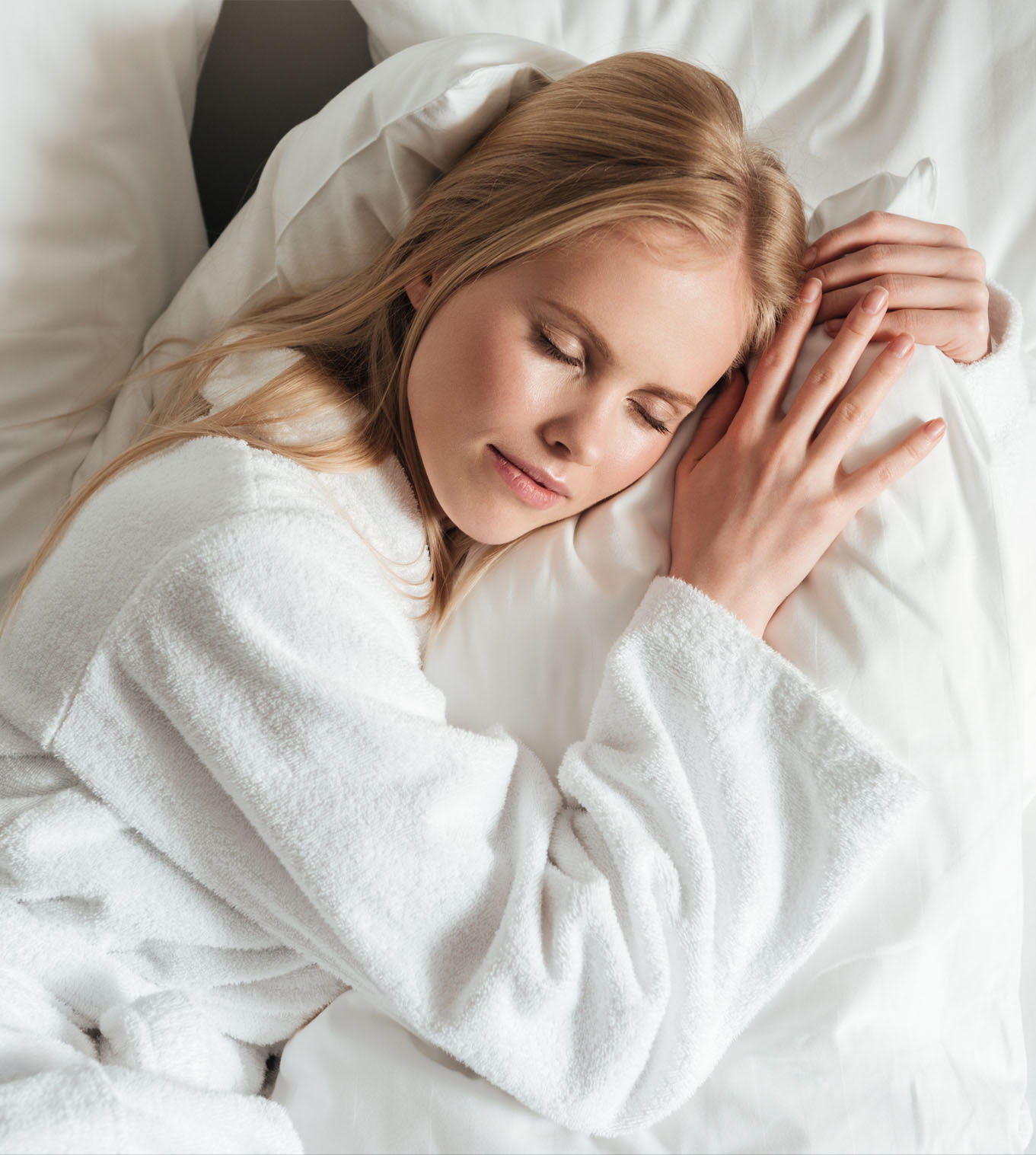The dream
We have to consider more the quality than the quantity of hours of sleep to have a good rest during the night.
Sleep, like other functions of the body (hormones, metabolism, etc.) is regulated by the so-called "biological clock". This is a neuronal centre located in the cerebral hypothalamus whose function is to give the signal to the rest of the structures in the brain to start and end sleep. In this way, the biological clock will be the one that establishes at what time the propensity to sleep increases and at what time it decreases. When activated, the biological clock sends a signal to the pineal gland, located next to the brain, so that it begins the production of melatonin, and this hormone coordinates the adaptation of the remaining functions of the body to begin the sleep period.
When you sleep you are unconscious, but the functions of his brain and body are still active. Sleep is a complex biological process that helps you process new information, stay healthy and feel rested.
During sleep, your brain goes through five different phases: Stage 1, 2, 3, 4 and rapid eye movement sleep (MOR or REM).

Different things happen in each stage. For example, you go through different patterns of brain waves (patterns of electrical activity in the brain) in each of them. Your breathing, heart rate and temperature can be faster or slower in certain stages. Some phases of sleep can help you feel more rested and energized the next day. The different phases of sleep help him to:
- ◆ Feel rested and energized the next day.
- ◆ Learn information, reflect and train memories.
- ◆ Feel rested and energized the next day
- ◆ Release more growth hormone, which helps children grow. It also increases muscle mass and cell and tissue repair in children and adults.
- ◆ Release sex hormones, which contribute to puberty and fertility.
- ◆ Avoid getting sick or getting better when you are sick, creating more cytokines (hormones that help the immune system fight various infections)

How can I sleep better?
You can take steps to improve your sleep habits. First of all, make sure you have enough time to sleep. By getting enough sleep each night, you can feel better and more productive during the day.
To improve your sleep habits, it can also help:
- ◆ Go to bed and wake up at the same time every day.
- ◆ Avoid caffeine, especially in the afternoon and evening.
- ◆ Avoid nicotine.
- ◆ Exercise regularly, but not too late.
- ◆ Avoid alcoholic beverages before bedtime.
- ◆ Avoid heavy food and drinks at night.
- ◆ Do not nap after 3 in the afternoon.
- ◆ Relax before bed, for example taking a bath, reading or listening to soft music.
- ◆ Keep your bedroom in a cool temperature.
- ◆ Get rid of distractions like noise, bright lights, and the TV
or computer in the bedroom. Also, don't be tempted to use
your phone or tablet right before bed, this is very important
so that the melatonin production cycle is not affected.
- ◆ Get enough sun during the day.
- ◆ Do not lie awake in bed. If you can't sleep for 20 minutes, get up and do something relaxing.
- ◆ See a doctor if you have constant trouble sleeping.
You may have a sleep disorder, such as insomnia or sleep apnea. In some cases, your doctor may suggest using sleep medications. In other cases, you can request a sleep study to diagnose the sleep problem.


